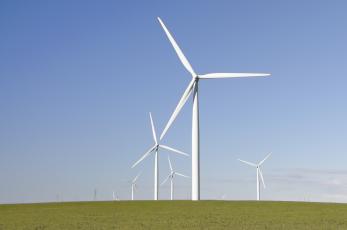Environmental Sustainability
Photo of Solar panel on dramatic sunset sky background
Environmental Sustainability
Focus on Sustainability
NJCU is continuously working towards reducing its ecological footprint and is committed to environmental sustainability. Through the institution’s initiatives and efforts, many accomplishments and successes have taken place to make the campus greener.
Some accomplishments include:
- Reducing water usage on campus by 10.4% from 2011 to 2019, even as the square footage of the campus footprint increased by 12.6% during that same timeframe. Installing low flow/motion-activated fixtures and rain sensors are part of the ongoing water conservation initiatives.
- Installing 16 water refill/hydration stations throughout the campus, including all residence halls, Gilligan Student Union Building, and the John J. Moore Athletic Center.
- Natural gas and electricity usage decreased by over 357 BTUs per square foot from 2011 to 2019. Energy-saving initiatives include an LED lighting implementation, motion-activated occupancy sensors for classrooms and offices, and dusk to dawn lighting fixtures.
- A Building Management System was implemented for controlling HVAC equipment on campus, and upgrades to the combined heating, cooling, and power plant, and energy distribution systems.
- Over the last decade, NJCU has reduced its total fleet size by 13% and has been replacing older vehicles with more energy-efficient models. In the last two years, the fuel consumption used by the NJCU vehicle fleet was reduced by 18%.
- NJCU strives to reduce waste going to the landfill by practicing campus-wide recycling and sustainable activities management. Since 2011, NJCU has reduced trash waste by 13%.
- A rain garden was installed outside the Visual Arts Building in 2017 and is monitored through undergraduate research projects. Rain gardens help to reduce stormwater runoff which is a major cause of water pollution in urban areas.
- NJCU’s West Campus Student Residence Hall received LEED Certification approval.
- NJCU is offering a growing number of courses across seven departments that include sustainability-related topics. An interdisciplinary B.A. program in Sustainability Studies was launched in Fall 2020 with the Earth and Environmental Sciences department.
- A Sustainability Dashboard has been created to keep the University and external communities engaged and informed about its efforts and initiatives.
- In 2019 NJCU participated in the UI GreenMetric World University Rankings. The survey measures each participating university’s commitment to developing an environmentally friendly university. Our score, No. 21 in the United States, reflects the efforts being made to implement environmentally friendly and sustainable policies and programs in the following areas:
- Setting and Infrastructure
- Energy and Climate ChangeWaste Recycling
- Water Conservation
- Transportation
- Education and Research
